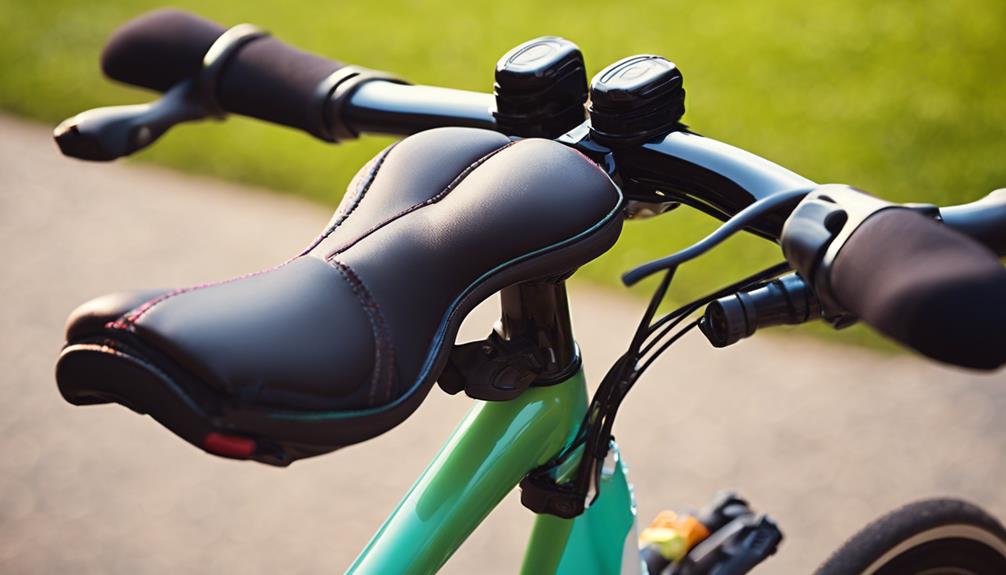In recent years, urban commuting has undergone a significant transformation. With increasing traffic congestion, rising fuel prices, and heightened environmental concerns, many commuters are seeking alternative modes of transportation. One such innovation making waves in the transportation sector is the Jetson electric bike. This article explores the benefits, features, and implications of Jetson electric bikes, providing insights into why they are becoming a preferred choice for urban dwellers.
Understanding Jetson Electric Bikes
Jetson electric bikes represent a fusion of traditional cycling and advanced electric technology. These bikes are equipped with electric motors that assist with pedaling, making it easier for riders to navigate through city traffic and tackle hills. The Jetson brand, known for its commitment to innovation and sustainability, has developed a range of electric bikes designed to cater to various commuting needs.
Key Features of Jetson Electric Bikes
Jetson electric bikes come with a plethora of features that enhance the riding experience, making them not only efficient but also enjoyable. Here are some of the standout features:
- Electric Assist: Jetson bikes are equipped with powerful electric motors that provide pedal assistance, allowing riders to travel longer distances with less effort.
- Lightweight Design: Many models are designed to be lightweight, making them easy to carry and maneuver in urban environments.
- Foldable Options: Some Jetson models offer foldable designs, making them convenient for storage and transport, especially in crowded urban settings.
- Smart Technology: Integrated smart features, such as built-in lights, LCD displays, and Bluetooth connectivity, enhance safety and user experience.
- Eco-Friendly: Jetson electric bikes are a sustainable alternative to cars, producing zero emissions and promoting a healthier lifestyle.
The Benefits of Using Jetson Electric Bikes
Choosing a Jetson electric bike for commuting or leisure comes with numerous advantages. Here are some key benefits:
- Cost-Effective: Electric bikes can significantly reduce commuting costs. With no fuel expenses and lower maintenance costs compared to cars, riders can save money in the long run.
- Health Benefits: Riding an electric bike promotes physical activity, helping to improve cardiovascular health and overall fitness levels.
- Time Efficiency: Jetson bikes allow riders to bypass traffic jams and reach their destinations faster, making them an efficient alternative to cars.
- Environmental Impact: By opting for an electric bike, riders contribute to reducing carbon footprints and minimizing urban pollution.
- Convenience: Jetson electric bikes can navigate through narrow streets and bike lanes, providing flexibility that cars cannot offer.
Case Studies: Jetson Electric Bikes in Action
To understand the impact of Jetson electric bikes on urban commuting, let’s take a look at a few case studies:
Case Study 1: Urban Commuters in San Francisco
In San Francisco, a growing number of commuters have turned to Jetson electric bikes to navigate the city’s hilly terrain. A local survey found that:
- 70% of respondents reported reduced commute times.
- 65% expressed satisfaction with the ease of use and convenience.
- 80% appreciated the environmentally friendly aspect of electric biking.
This case study highlights how Jetson electric bikes have become an integral part of the commuting ecosystem in a challenging urban landscape.
Case Study 2: College Students in Urban Campuses
Many college campuses have embraced Jetson electric bikes as a sustainable mode of transportation. At a prominent university, a pilot program introduced Jetson bikes to students:
- Over 500 students participated in the program.
- 90% reported a preference for biking over walking or using public transport.
- Many students noted improved attendance and punctuality due to decreased travel times.
This demonstrates the potential of Jetson electric bikes to not only ease mobility but also enhance academic performance through improved accessibility.
Statistics: The Growth of Electric Bikes
The electric bike market is witnessing exponential growth. According to a report by Allied Market Research, the global electric bike market was valued at $23.83 billion in 2020 and is projected to reach $118.64 billion by 2030, growing at a compound annual growth rate (CAGR) of 18.7%. Some pertinent statistics include:
- In 2022, electric bikes accounted for 27% of total bike sales in the U.S.
- The number of electric bike users is expected to reach 130 million by 2023 globally.
- Electric bike adoption has increased by 72% among urban commuters since 2018.
These statistics reflect a growing acceptance and reliance on electric bikes as a viable transportation option.
Challenges Facing Electric Bike Adoption
Despite their many benefits, the adoption of electric bikes like Jetson’s is not without challenges. Some of the obstacles include:
- Infrastructure Limitations: Many cities lack adequate bike lanes and safe parking facilities, which can deter potential riders.
- Regulatory Hurdles: In some regions, laws surrounding electric bikes can be confusing, impacting their legality and usage.
- Cost Considerations: Although cheaper than cars, the upfront cost of electric bikes can still be a barrier for some consumers.
Addressing these challenges is crucial for further integration of electric bikes into urban commuting systems.
Conclusion: The Future of Urban Mobility
Jetson electric bikes are more than just a trend; they represent a shift towards sustainable urban mobility. With their innovative features, numerous benefits, and positive impact on the environment, they are well-positioned to lead the charge in modern transportation solutions. As cities expand and evolve, the role of electric bikes will likely grow, offering a practical and eco-friendly alternative to traditional commuting methods.
In summary, the rise of Jetson electric bikes underscores a broader movement towards sustainable living, healthier lifestyles, and smarter urban planning. Embracing electric bikes can pave the way for cleaner, more efficient cities, and it is essential for individuals, businesses, and governments to support this shift. The future of commuting may very well be electric, and Jetson is at the forefront of this exciting revolution.
